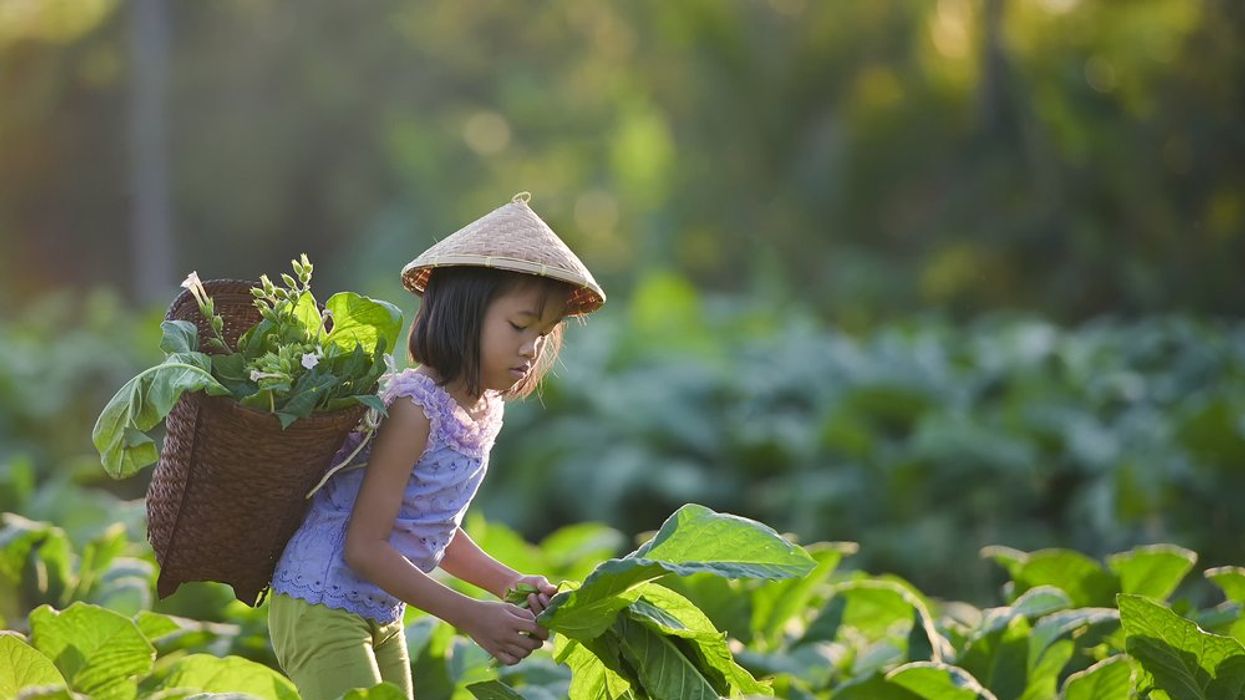Under United States law, 12-year-olds can't buy tobacco products, but they can work in a tobacco field.
In most industries, workers must be 16 years of age in order to work unlimited hours. To perform tasks deemed hazardous, they must be at least 18. In the agriculture industry, children can work unlimited hours at as young as 12 years old, and can perform hazardous tasks at 16.
"If a labor inspector goes to a tobacco farm and finds a 12-year-old kid working, there's no labor violation to report," senior children's rights researcher at Human Rights Watch Margaret Wurth told NPR.
The 1938 Fair Labor Standards Act prohibited the employment of minors in "oppressive child labor," but made exceptions for the agriculture industry on account of family-run farms, which were prevalent during the Great Depression. The law also set minimum wage and overtime pay provisions, but some farms have been exempt from those as well.
On tobacco farms, workers are at risk of nicotine seeping into their skin, which can cause nicotine poisoning, and bring symptoms of nausea, dizziness, and vomiting. Children's underdeveloped immune systems put them at even greater risk in handling tobacco.
In 2014, many tobacco companies announced policies that would prevent hiring laborers under the age of 16, and would prohibit them from performing hazardous work. However, laborers are often brought to growers by independent contractors, meaning many do not know those who work under them. According to Wurth, many tobacco companies say "'we don't have any kids in our fields,' but they might not even actually know."
Over a year after companies announced restrictions, researchers at Wake Forest University School of Medicine found that children under 16 were still largely working in tobacco. Wurth added whether legally or illegally, "wherever families are struggling to make ends meet, kids are going to find themselves in the workplace."
One such former child farmhand, Yesenia Cuello, began working in tobacco fields at 14 years old. Now the executive director of NC Field, a nonprofit in rural eastern North Carolina, she advocates for fair wages and treatment for farmhands.
"The reality is that if you're not working, you're not making money," she said. "And if you're not making money, are you eating?"
Fair wage laws would benefit farmhands and their families immensely, according to Cuello. While immigration reform may prevent farmhands from having their labor exploited, she said that free community youth programs — particularly during the summer — could also prevent children from entering the workforce with their parents.
"People should understand that the food they're eating on a daily basis is harvested by oppressed people," Cuello told NPR, adding that the country's food is "touched by millions of people who sometimes have no choice but to send their children to work."
- How Biden Is Trying to Revive Nationwide Childcare Funding From WWII ›
- Arkansas Governor Rolls Back Child Labor Protections ›
- McDonald's Accused of Abusing Child Labor Laws ›
- Poor Government Oversight Led to Migrant Kids Working Unsafe and Illegal Jobs, Whistleblower Says ›
- Youth Tobacco Use Rates Declined Slightly in US, But ‘Work Is Far From Over' ›
- LA Poultry Plant Punished For Illegal Child Labor ›



















































